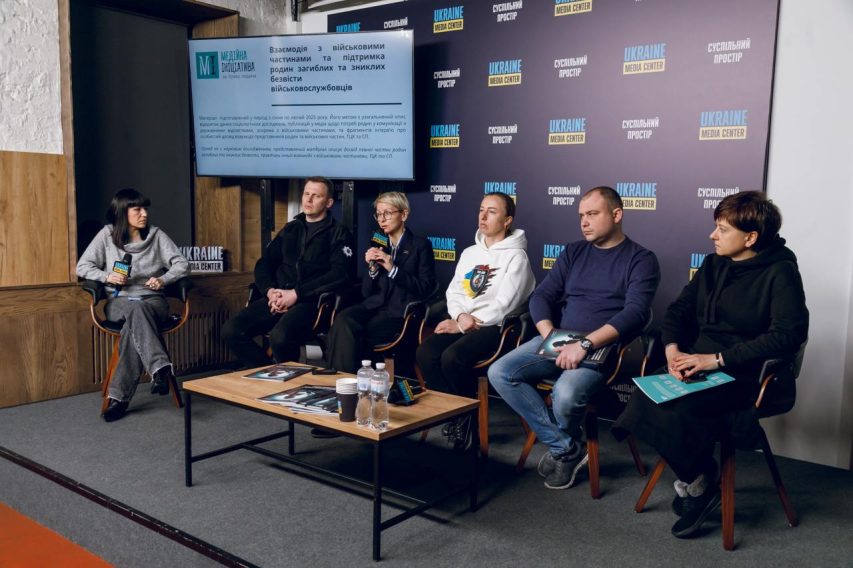
Communication, empathy and crisis support: The expert highlighted key aspects for effective work with families of fallen and missing warfighters
Despite guarantees from the state, some families of fallen and missing soldiers face numerous difficulties in their interactions with the government. Delayed information about the fate of their loved ones, errors in processing basic documents, and the assignment of the status of “missing in action” when there is evidence of death are just a few of the obstacles faced by families experiencing the pain of loss. Therefore, it is important for state agencies working with the families of fallen and missing warfighters to pay attention to and refine some crucial aspects of quality cooperation.
This was emphasized by Olena Kopina, the author of the analysis and invited expert during the presentation of the analysis at the Media Center Ukraine.
According to her, it is particularly important right now to complete the creation of a unified information platform for the families of missing warfighters, initiated by the Commissioner for Persons Missing Under Special Circumstances. She is convinced that this platform should improve the communication between the families of the missing and state authorities, as well as speed up the exchange of information between all those involved in the search for and accounting for missing servicemen.
Olena Kopina noted that it is important for the Ministry of Defense and the Ministry of Internal Affairs to pay attention to emotional intelligence, empathy and ethical standards in the selection of candidates for positions in the Territorial Recruitment Centers and Social Support Services.
In addition, it is essential to develop standardized, easy-to-understand information materials (guides) with up-to-date contact information for the relevant departments and a description of the steps the family of a missing serviceman must take to collect and submit the necessary documents.
Moreover, the expert added, it is crucial to provide the families of newly mobilized soldiers with contacts for the patronage service or military and civilian cooperation service of the military unit for quick response in case of the serviceman’s death or disappearance.
Olena Kopina also emphasized the importance of providing crisis support to families during the notification process, involving medical professionals and psychologists.
She pointed out the importance of providing assistance to specialists in territorial recruitment centers, military units and social support who work constantly with families, in order to prevent burnout and secondary trauma.
The expert also emphasized the importance of providing families with contact information for the patronage service or the military and civilian cooperation service immediately after the serviceman’s mobilization.
In addition to cooperation with state authorities, Olena Kopina also stressed the importance of cooperation with public organizations on issues related to fallen and missing warfighters.
She stressed the importance of holding joint round tables and meetings involving military units, territorial recruitment centers, families and public associations. According to her, the potential of NGOs should be used to provide legal, psychological and informational support. In addition, she mentioned that advocacy initiatives and legislative changes initiated by human rights organizations should be supported.
Read more: https://mediacenter.org.ua/news
 Back
Back 